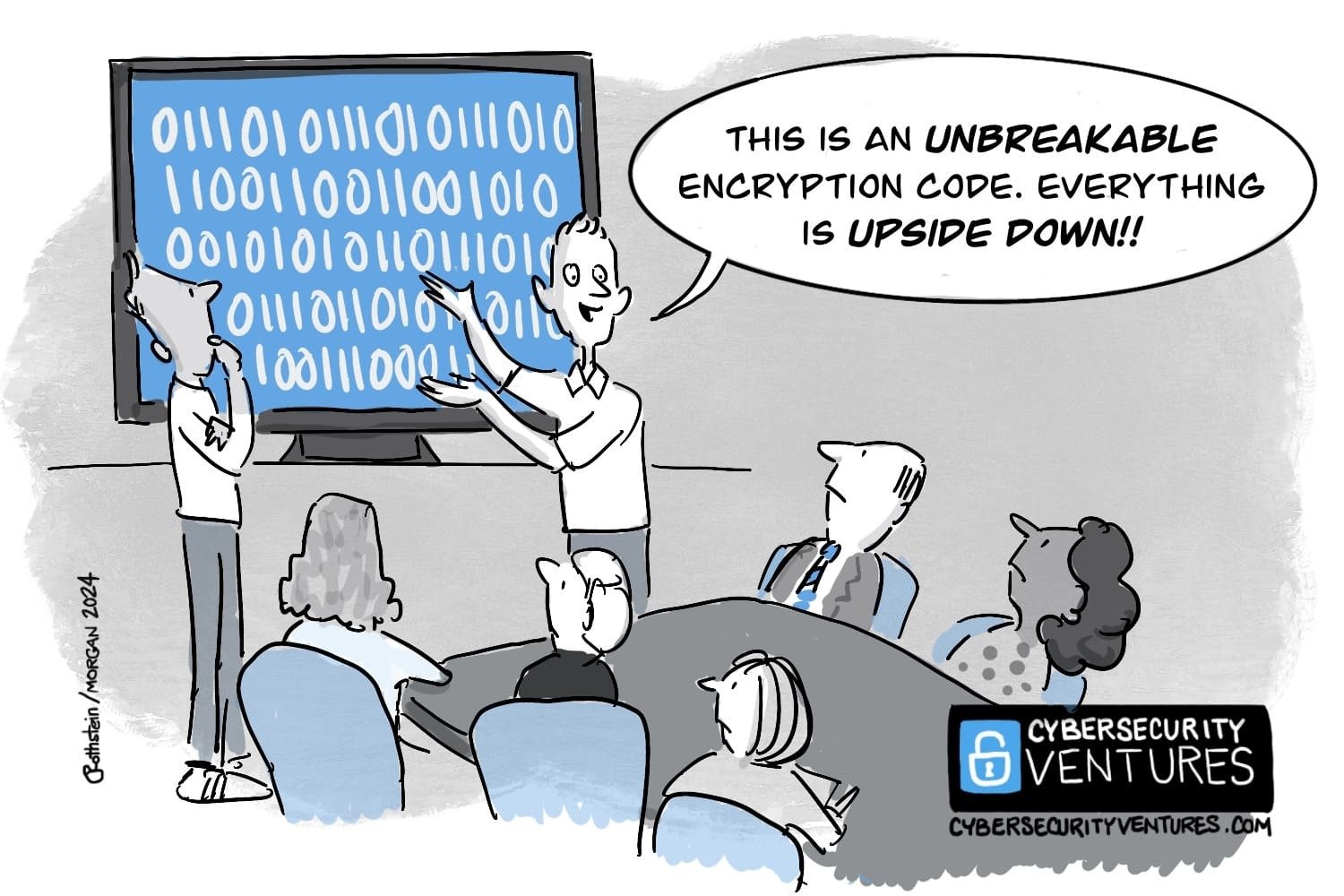Storing passwords in your browser may seem like a convenient solution, but it comes with serious security risks for businesses. While it saves time, this practice leaves your sensitive information vulnerable to various threats. Here’s why storing passwords in Chrome, Edge, or any other browser is discouraged and what you can do to better protect your data.
Securing the Future: Why Cybersecurity is Critical for Manufacturers
Cybersecurity has become a pressing issue across industries, and manufacturers are no exception. Recent attacks have exposed how vulnerable this sector is, with cybercriminals exploiting weaknesses to disrupt operations and cause financial damage. A striking example is the cyberattack on Clorox in August 2023, which led to significant system shutdowns and an estimated $49 million in recovery costs. Yet, despite such high-profile incidents, many manufacturing companies still treat cybersecurity as a low priority.
Urgent Lessons from Recent Cyber-Attacks: Why Every Business Needs Stronger Cybersecurity
Imagine the software your company relies on to close deals, process payments, and pay employees suddenly crashes with no clear timeline for recovery. Could your business keep running smoothly? How much revenue would you lose? This nightmare became a reality in June for more than 15,000 car dealerships across the U.S. and Canada when CDK Global, a major provider of industry software, was hit by two cyber-attacks.
Tackling Multidimensional Threats in a Digitally Connected World
Criminal networks engaged in gang violence, drug trafficking, human smuggling, and terrorist recruitment have rapidly adapted to the rise of digital technologies, transforming how they operate. This evolving threat landscape poses significant challenges for law enforcement, governments, and society as a whole. Malicious actors now leverage online platforms not just for illicit activities but to destabilize institutions and erode public trust.
Vacation Travel Scams Increase by 900%: What You Need to Know
Source: Vector choice - URS Preferred Partner
Summer is a peak time for vacation travel, and if you're planning a last-minute getaway, there's a new scam you should be aware of. With rising costs for everything from food to travel, it's tempting to scour the internet for the best deals to plan a memorable trip without overspending. Unfortunately, cybercriminals are taking advantage of this trend, using sophisticated AI-generated phishing emails that can drain more than just your vacation fund. According to Booking.com’s Chief Information Security Officer, Marnie Wilking, there’s been a staggering 500% to 900% increase in travel-related scams over the past 18 months due to this malicious tactic.
How Are Scammers Pulling This Off?
Phishing emails have been around for as long as the internet, but AI tools like ChatGPT are making them more convincing than ever. In the past, phishing attempts were often easy to spot due to obvious spelling and grammatical errors. Now, with AI, scammers can produce polished, professional-looking emails that are far more likely to deceive even the cautious reader.
Here's their method: Scammers exploit popular platforms like Booking.com or Airbnb, which allow users to list properties as short-term rentals. They send out emails offering amazing deals or urgent discounts on fake listings. Once someone pays, the scammers either vanish with the money, leaving the victim without a place to stay, or they continue to extract additional "fees" through follow-up emails before disappearing.
It's important to note that vacation-related phishing scams aren't new, but the rise of AI has made them more convincing, leading to more victims.
How Can You Protect Yourself?
Here are some crucial steps to avoid falling victim to these scams:
Enable Two-Factor Authentication: Whenever possible, use two-factor or multi-factor authentication. This adds an extra layer of security by requiring a confirmation code sent to your phone each time you log in, helping to prevent phishing attacks and credential theft.
Avoid Clicking on Email Links: If you receive an email offering a deal that seems too good to be true, it probably is. Instead of clicking on the link, visit the website directly and search for the offer. If you can’t find it, you might have just dodged a scam.
Verify Before Booking: Before booking any property online, ensure that contact information and reviews are easily accessible. Look for verified reviews from other users who have stayed at the property; this reduces the likelihood of falling for a scam.
Use Credit Cards for Online Purchases: Credit cards offer an extra layer of protection compared to debit cards, which are linked directly to your bank account. If your debit card is compromised, recovering stolen funds can be difficult, if not impossible. Credit cards provide greater security against fraudulent charges.
Stay Vigilant
The key to protecting yourself is vigilance. Scrutinize every email offer you receive and adhere to cybersecurity best practices. While standard security software can catch some scam emails, it won't catch them all, so it's crucial to remain cautious and alert to potential red flags.
A personal scam might ruin your vacation, but a breach of your business could have far-reaching consequences for you and your family. Stay informed and protect yourself from these evolving threats.
To learn more Contact us
Beware of Sneaky Software: Protecting Your Business from Browser Threats
Running a business involves managing countless tasks, and cybersecurity shouldn't add to the burden. Yet, in our increasingly digital landscape, even minor threats can have major consequences. This article highlights two common browser-based attacks that target businesses like yours and provides straightforward steps to protect your data.
How to Respond When Your Data Is Compromised by a Company
Protecting Yourself After a Data Breach
With the rise in cyber-attacks worldwide, you've likely received notifications from companies informing you that your data has been compromised in a breach. While we can take steps as consumers to protect ourselves, we cannot always control when a company that promised to safeguard our personal data gets hacked.
LinkedIn Impersonation in Phishing Attacks: A Growing Threat
A recent report from Check Point Research revealed a startling statistic: LinkedIn, the Microsoft-owned business platform, is impersonated in nearly half of all phishing attacks globally.
Common Phishing Tactics on LinkedIn
Phishing Emails: Scammers often target job seekers with emails that mimic LinkedIn notifications, such as "You have 1 new invitation" or "Your profile has been viewed by 63 people." While these messages can appear authentic, it's crucial to verify the sender's email address to ensure it's genuinely from LinkedIn. These fraudulent emails often contain links to fake LinkedIn pages designed to steal your personal information.
Fake Profiles and Job Offers: Cybercriminals create fake LinkedIn profiles to message users about job opportunities. Once engaged, they may ask for a small payment to process the application or direct you to a phishing link disguised as a form to fill out.
Steps to Take During the CrowdStrike Outage
As organizations work to remediate affected systems, it's crucial to stay alert to phishing campaigns and spoofed domains set up by threat actors attempting to exploit the outage.
CrowdStrike's Remediation Measures
CrowdStrike has provided a solution utilizing the Falcon sensor’s built-in quarantine functionality to remove the problematic channel file causing Windows systems to crash. According to CrowdStrike, when a Windows system with Falcon installed contacts the CrowdStrike Cloud, a request is issued to quarantine the faulty file, visible in the Falcon UI. If the file does not exist, no quarantine occurs, and systems operate normally. The solution may require two or three reboots to take effect due to a timing issue between the file's quarantine and activation. For best results, CrowdStrike recommends using a wired network connection to minimize latency.
FTC to Investigate Data Privacy Practices of U.S. Car Dealerships
The Federal Trade Commission (FTC) has announced plans to investigate the data privacy practices of car dealerships across the United States. This initiative represents a significant expansion of the FTC's oversight into an industry that has traditionally operated with less regulatory scrutiny compared to others.
Bitcoin Beggar.
Source: cybersecurityventures.com
CrowdStrike Update Causes Global IT Outage and Security Concerns
On July 19, 2024, at approximately 1:00 a.m. ET, a widespread IT outage began due to a defect in a single CrowdStrike content update. This outage affected numerous Windows hosts globally, including critical U.S. State, Local, Tribal, and Territorial (SLTT) government systems. CrowdStrike has since isolated the issue and deployed a fix.
Recap of the Microsoft Outage on July 19th, 2024: Essential Insights for Businesses
Major Software Outage on July 19th, 2024
On July 19th, 2024, a significant software glitch caused major disruptions for businesses worldwide. This outage affected Microsoft 365 services, including essential applications like Outlook, Teams, and OneDrive, leading to substantial challenges across various industries. As a Managed Service Provider (MSP), we understand the importance of staying informed and prepared for such events. Here’s a detailed look at what happened, who was impacted, and the current status.
Chief Information Security Officer
Source: cybersecurityventures.com
Strengthen Your Business's Cybersecurity with a Virtual CISO
In today's digital landscape, cyber threats are a significant concern for businesses across all sectors. From financial institutions and manufacturers to healthcare providers and legal firms, safeguarding sensitive data is paramount. A virtual Chief Information Security Officer (vCISO) can be a crucial component of your cybersecurity strategy, offering expertise on a flexible, part-time, or project-based basis. This cost-effective solution is ideal for businesses that do not require a full-time security leader. Here are five key ways a vCISO can help secure your data:
Identity Crisis
Source: cybersecurityventures.com
US Department of Energy Unveils Energy Supply Chain Security Principles
The US Department of Energy (DOE) has released a comprehensive set of Supply Chain Cybersecurity Principles. These guidelines aim to ensure robust cybersecurity measures across the global supply chains involved in constructing energy automation and industrial control systems (ICS).
The Hidden Costs of Skimping on Security: Protect Your Business
As a business leader, you're always looking for ways to increase revenue, cut expenses, and grow your bottom line. Implementing AI tools, optimizing services, and running a more efficient operation are excellent strategies to achieve this. However, one area where you should never cut corners is using free antivirus or firewall software.
Unbreakable Code
Source: cybersecurityventures.com
Understanding and Mitigating Business Risks
Operating a business inevitably involves facing various risks. The impact of an unexpected incident can be substantial, particularly if you're unprepared. The key to navigating these challenges lies in your preparedness. Timely response, minimizing operational disruption, and managing costs effectively are all critical factors. However, the first step is understanding the types of risks you may encounter. Here, we outline the seven types of business risk and strategies to prepare for them.














